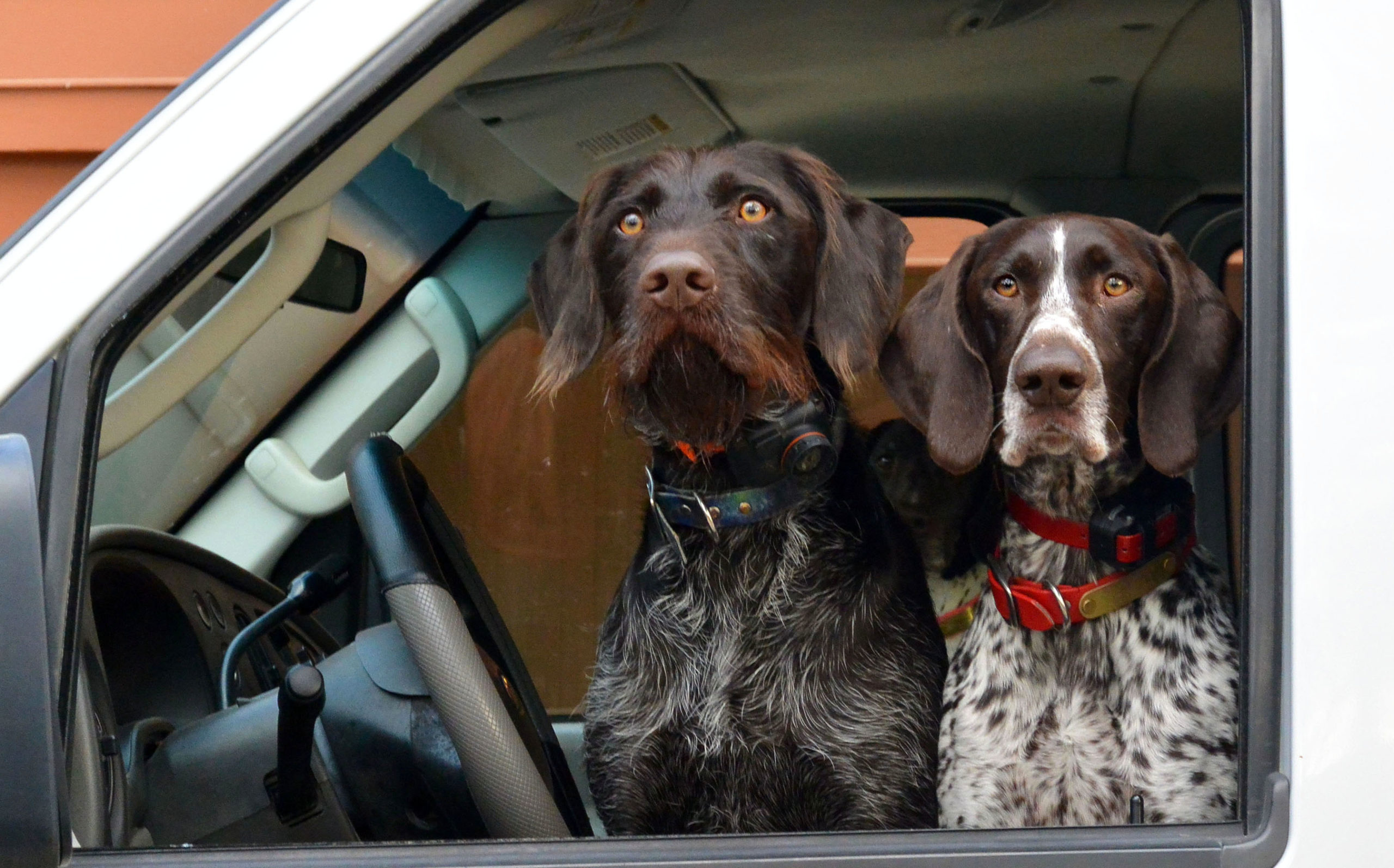
Hunting trips would be much smoother if our gun dogs could pack their own gear. And read road maps. And use the restrooms at a truck stop. Reality differs, however. Whether you cross-country cruise in a big hunting rig or fold your little SUV’s back seats down and throw in a crate, travelling with hunting dogs presents challenges to efficiency and safety. Here are a few tried-and-true and a few new tips for travelling with hunting dogs.
- Rather than stopping at highway rest areas and truck stops where the parking lots and dog walk areas have a lot of litter and potential hazards (think unhealthy dog poops, antifreeze leaks, junk food wrappers), use the “texting” stops many Interstates now offer. They have less traffic than gas and food rest areas and often a nice grass/wooded backdrop.
- If you’re travelling for just a few days, consider pre-bagging dog food into meal-sized portions in plastic baggies. That will avoid the risk of ole Ruger chomping into a loosely closed paper dog food bag in the truck or cabin, and it will make meal time quicker and easier. (If your dog takes pills, pre-load them in each baggy with the food.) For longer trips, use a roll-and-clip closed dog food storage bag like the Mud River Food Bucket or the Avery Dog Food Bag that stands up when full but can be compressed and buckled smaller as the food is used up and gear in the truck expands (with those coolers full of birds, of course).
- Keep a photocopy of your dogs’ medical info – rabies vaccinations, especially — in case you need to board the dogs in an emergency or if they need to go to a vet. Unexpected roadblocks like you getting injured or needing to fly home for a family emergency or a natural disaster like a blizzard blocking your planned route (with no dog friendly hotels around) might result in the need to board your dogs. Kennels that don’t know you are more likely to take your dogs if they can check vaccination records.
- Consider getting an ecollar with a beacon light feature like several of the Garmin training collars and tracking collars. These are great for watching where Honeybelle wanders when you let her out at night in strange territory and also makes her more visible to oncoming vehicles or people.
- Keep one of those amazing reflective silver mesh shade tarps on hand if you’re making stops in hot weather. Draped lean-to style over a raised hatch or open truck back window, the tarp reflects sun but lets breeze in, considerably dropping the temperature underneath.
- If your dog will be riding in an unfamiliar crate or truck box, bring a towel or small piece of kennel blanket with familiar smells. This could help reduce the pup’s stress in a strange looking or smelling place.
- Go online and find emergency vets in the area(s) where you’ll be hunting.
- If you’re staying in a pet-friendly hotel and your dog will be loose in the room at any time with or without you, check under the bed and around the furniture and closets for insect traps or poisons. Never let your dog drink out of a hotel toilet; most hotels use very strong disinfectants that leave residue that can make a dog sick. And keep an eye on water puddles in rest stop parking lots, airport tarmacs, etc. where antifreeze, de-icing fluid and other toxins might be used.
- If your dog is a finicky eater or just gets too amped up on hunting trips to pay attention to food, bring along a couple of small cans of what we call doggie “junk food” – the juicy gravy smushy stuff that you can stir into the high quality dry food your dog usually eats.
